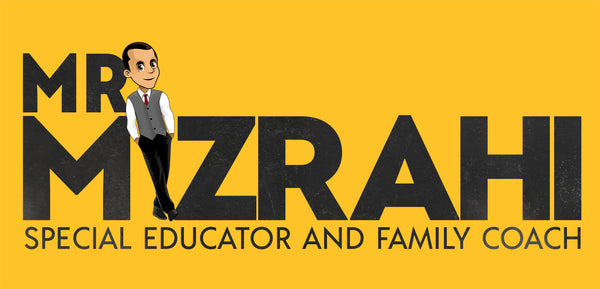
Temper Tantrums VS Meltdowns
Share
There are significant differences, neurologically, between a temper tantrum and a meltdown – those differences come down to which parts of the brain are in control during a meltdown or a temper tantrum.
Tantrums
As awful as tantrums can be, it is an indicator that your child’s executive functions are developing typically. So, in a strange way you can be proud of your kiddo for that fit they’re throwing.
A child having a tantrum is acting out in order to get their way or push your buttons or get some attention. They’re likely operating with the forebrain and midbrain – the thinking and feeling brain.
They may appear out of control but are able to stop the tantrum abruptly (for example, when they get what they want) and return to making logical decisions and behaving calmly.
Parents are taught to ignore tantrum – because if your child’s tantrum doesn’t get them what they want or get a reaction out of you, they will learn that this strategy is ineffective and over time, will stop.
You may notice a child who is throwing a tantrum will look over at you to see if you’re watching them.
Young children use tantrums because they don’t have the communication skills yet to communicate their wants and needs. Learning about their feelings, and positive ways to communicate, will drastically reduce the frequency of tantrums.
Meltdowns
A meltdown is completely different.
When a child is having a meltdown, thanks to their amygdala causing fight or flight to kick in, the prefrontal cortex responsible for executive functioning completely shuts down.
Stress hormones flood their tiny body and, temporarily, they are literally incapable of controlling their actions and emotions, or using any executive functions like considering consequences, problem-solving, or listening to reason.
When your child is having a meltdown, they do not need you to set firm boundaries or ignore their outbursts. Your child needs you to be nurturing and comforting until the meltdown is over.
The best approach to take will vary depending on your child’s temperament and what the trigger of the meltdown was. Just remember that this is an emotional reaction and not a behavior choice.
When your child is having a meltdown, trying to talk to them about consequences or appropriate vs inappropriate behavior will not help, and may in fact make things worse.
The executive functions of the brain need to be up and running for any of this information to be processed.
When their emotions are regulated again, and no longer rushing with emotions, you can talk about appropriate vs inappropriate behavior with them.
It’s better to talk to your child using compassion and understanding than to be punitive. The best strategy for meltdowns is to be proactive.
Coach Benjamin Mizrahi. Educator. Learning Specialist. Family Coach. Father. Husband.
More articles on Mr Mizrahi's Blog - Benjamin Mizrahi
